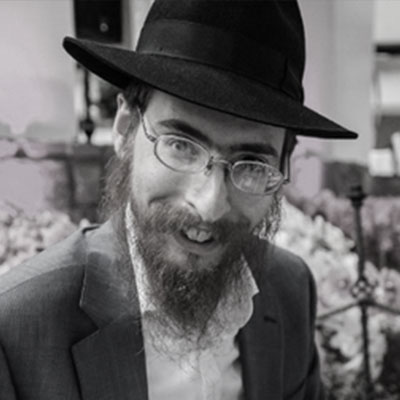Does Orthodox Judaism have a privilege problem? This is the question that Dr. Rivka Press Schwartz has outspokenly been raising for the last fifteen years. Now, people are listening.
In her 2010 contribution to Yeshiva University’s Orthodox Forum, she wrote on the topic of “Privilege, Perspective, and Modern Orthodox Youth,” in a lucidly thought-through consideration of the history of the Orthodox position in contemporary America. In this article, Rivka takes as a starting point the widespread sense that Orthodox Jewry has ‘earned’ its place in this country, in their socio-economic and cultural positioning. In her words, reflecting on this position:
… being successful creates a powerful psychological dynamic that further distances those who have from those who do not, and which makes that empathy all the more difficult to achieve. We desire, indeed we need, to see our success as the product of our own efforts and achievements, rather than our good fortune. It is this phenomenon that Jim Hightower was pointing to when he mocked then-President George H.W. Bush as “someone who was born on third base and thinks he hit a triple.” Jews have, as a community, enjoyed great success in the economic, social, cultural, and political realms. A full accounting of the reasons for the success of Jews as a group would include a powerful immigrant work ethic, an intense emphasis on education as a means of advancement, and a fierce commitment to “making it.”
Rivka thinks we need to appreciate how complicated the story is made by external forces. Relying on several books on the history of higher education in the United States, (such as Ira Katznelson’s When Affirmative Action Was White, and A Consumer’s Republic by Lizabeth Cohen), Rivka argues that “we have been the beneficiaries of certain broader patterns in American life,” patterns that in some circumstances were exclusionary to other racial and social groups. From the New Deal legislation like Social Security, early forms of which excluded non-White Americans, to the G.I. Bill, and the complicated history of standardized testing and college admissions, a coterie of widespread policy decisions unduly benefited white-passing Americans (such as European-originating Jews) and hurt Black Americans. This is not a distant history; As the intensely loaded current conversations over Ivy League admissions standards attests, the impact of many of these policies are still being felt today.
A world that cannot live with strangers is a world not yet redeemed.
How does this history impact the education of an Orthodox student? Moreover, why should it? With a PhD from Princeton University and decades of experience teaching and talking with Modern Orthodox students, Dr. Press Schwartz is well-equipped when discussing the local importance and relevance to far-reaching historical phenomena. She thinks that the perspective we take upon our own successes on American shores are both deeply rooted in our self-concept as a people, with our particular history, and important for the way we look at the world today.
In her words:
Why does this matter? Why do I care if my students recognize that they are where they are by the accident of a birth, good luck, and a lot of advantages, and that but for the grace of God, they might have ended up in a very different place? That recognition is the necessary precondition for empathy. If you believe you have what you have because you earned it, then anyone who doesn’t have it hasn’t earned it, doesn’t deserve it, and has no claim on your hard-earned dollars to get it. If you have benefited from accidents of history, geography, skin pigmentation, and sheer dumb luck in getting where you have gotten in life, you will be more grateful for what you understand to be your good fortune, and will view differently those who have not gotten where you have gotten. Instead of seeing them as held back by their own lack of ability or hard work, you will recognize that they have not had the advantages that you were able to capitalize on, a recognition that might impose some sense of obligation, but at the least would impose humility.
Rivka is quick to point out that this by no means is the only ‘Jewish’ perspective, but her belief is that it is a necessary perspective:
So I will not pretend that this position is the only authentic Jewish one, or a necessary outgrowth of halakhic and Torah values. But I do think that it is necessary. High school students feel keenly the need for justice and fairness in the world. In the view of many of them, the idea that the most worthy get the most and rise to the top seems eminently fair, which explains Ayn Rand’s enduring popularity among that age group. If we can complicate their notions of worthiness, merit, and earning, we can have them think again about what those who succeed might owe the society that created the conditions for their success, and how they might view, and therefore what they might think it right to do for, those who have less than they.
History and humility go hand in hand. The more we think critically about our own history in this country, the more we will be able to look at groups different from our own and learn to listen without judgement. To educate about social justice in Orthodox schools, history and humility have to come together.
But even if we achieve that marriage of history and humility, there are still a number of issues that must be contended with when considering teaching social justice in Orthodox schools. Is social justice work a value? Is it a Jewish value? If you agree that it is a value worth inculcating in youth, where does the sensitivity and orientation of this social responsibility come from? These questions relate to the very purpose and parameters of social justice work. Echoing a far broader question about the nature and aims of school-based education, in one exchange on Twitter, 18Forty founder David Bashevkin and Dr. Press Schwartz disagree about this question: Should social justice be taught at home or in schools? What is a vision we might have?
The recently passed Rabbi Jonathan Sacks was one of the greatest voices on these questions of our time. In his magisterial To Heal a Fractured World, he wove a Jewish ethic of social responsibility out of timeless sources, placing the human and the divine in intimate conversation. In A Letter in the Scroll, one of the most powerful documents of Jewish identity of our age, Rabbi Sacks says this:
Two ideas have sounded like siren calls through the ages, leading men to shed the blood of other men. The first is that God is on the side of the strong, the many, the established power. That is why God chose a people who were weak, and few, and homeless. The second is that there is somewhere a truth so universal that it is to be imposed on all mankind. Behind all religious persecutions is the idea that it is acceptable to harm other people’s bodies to save their souls. In forcing them to accept certain beliefs, the persecutor is acting for their good, serving God through violence to the image of God. Both ideas lend rationale to why God chose a particular people as His own: he chose the powerless to teach that He is not to be found in power, and a people who neither shared the faith of others nor imposed their faith on others to teach that there is not one way to His presence, but many.
Historically, Israel has paid a high price for its religious vocation. Time and again Jews became the test case of a civilization. Were they tolerated? Were they protected under law? Were they granted basic human rights? Refusing to assimilate, insisting on their right to be different, Jews experienced the full force of hatred of the “stranger.” Those who persecuted Jews showed that they could not tolerate difference, and a civilization that does not tolerate difference fails a basic moral requirement of humanity. A world that cannot live with strangers is a world not yet redeemed.
This is a view of chosen-ness that privileges our powerlessness over our power, and our tolerance and openness to the stranger above our fears of difference. Rabbi Sacks was one voice arguing for this conversation. Dr. Rivka Press Schwartz is another. Rivka joins us to talk about education, social justice, and how the two might meet. This a layered, complex topic, and Rivka is the perfect guest to walk us through the many layers of this question. Having grown up in a more right-wing community, now occupying positions of leadership in several modern institutions, Rivka has the perspective of the insider-outsider, able to look critically and appreciatively at each community with an open mind.
Listen now to our conversation with Dr. Rivka Press Schwartz.





































